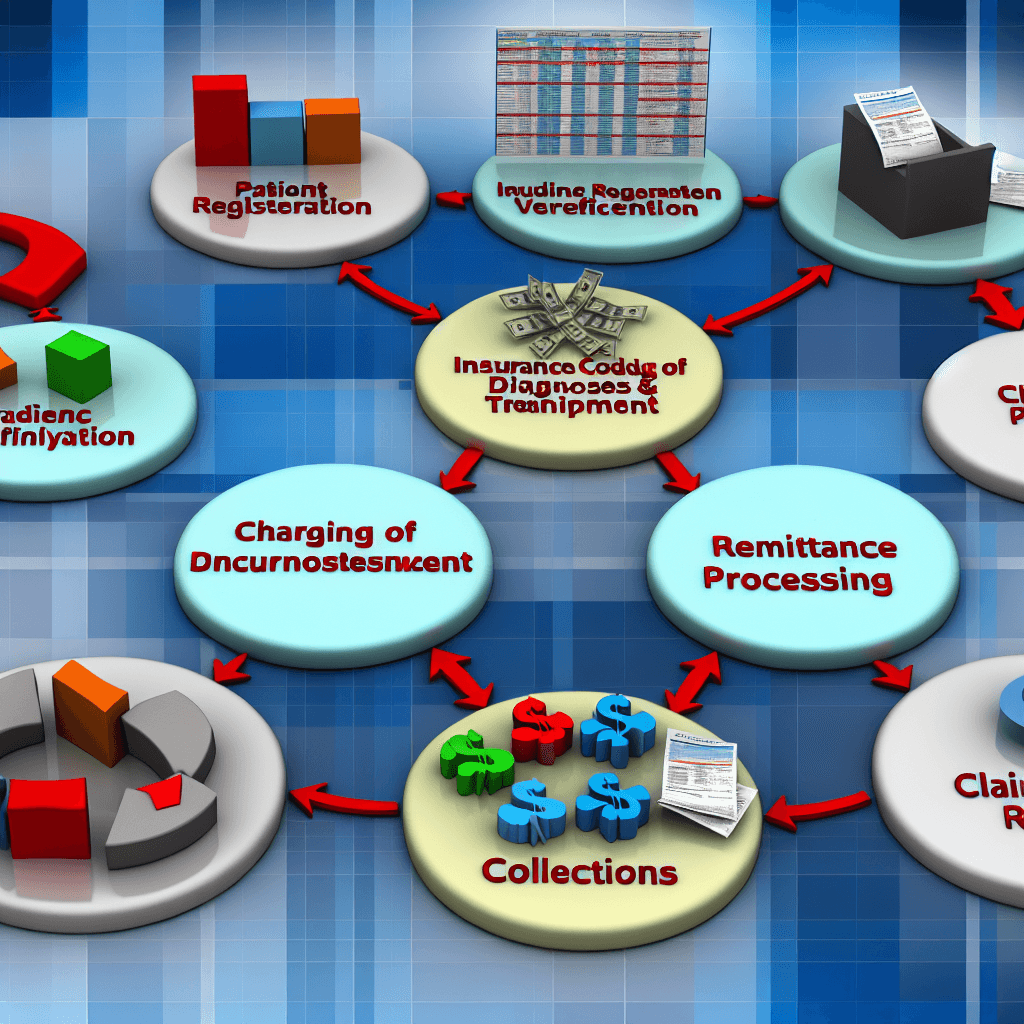Explore insights on the U.S. Healthcare Revenue Cycle Management Market, focusing on trends, forecasts, and key industry players.
U.S. Healthcare Revenue Cycle Management Market

Table of Contents
- Exploring the U.S. Healthcare Revenue Cycle Management Market
- Understanding Revenue Cycle Management
- Importance of RCM in Healthcare
- Current Trends in the U.S. Healthcare RCM Market
- Challenges Facing the RCM Market
- Technological Advancements in RCM
- Case Studies and Examples
- Future Outlook of the U.S. Healthcare RCM Market
- Conclusion
Exploring the U.S. Healthcare Revenue Cycle Management Market

The U.S. healthcare revenue cycle management (RCM) market is a critical component of the healthcare industry, ensuring that healthcare providers are reimbursed for the services they provide. This article delves into the intricacies of the RCM market, exploring its importance, challenges, technological advancements, and future trends. By examining case studies and statistical data, we aim to provide a comprehensive overview of the current state and future prospects of this vital sector.
Understanding Revenue Cycle Management
Revenue Cycle Management in healthcare is the financial process that facilities use to track patient care episodes from registration and appointment scheduling to the final payment of a balance. RCM unifies the business and clinical sides of healthcare by coupling administrative data, such as a patient’s personal information, with the treatment a patient receives and their healthcare insurance coverage.
Importance of RCM in Healthcare
Effective RCM processes are crucial for healthcare providers to maintain financial viability and focus on providing quality care. Here are several reasons why RCM is indispensable:
- Financial Sustainability: Efficient RCM processes ensure that healthcare providers are paid fully and promptly for the services they deliver.
- Regulatory Compliance: RCM helps healthcare providers comply with changing healthcare regulations and avoid penalties.
- Patient Satisfaction: Streamlined RCM processes reduce billing errors and improve the overall patient experience.
Current Trends in the U.S. Healthcare RCM Market
The U.S. healthcare RCM market is influenced by several trends that are shaping its future. These include:
- Integration of Advanced Technologies: The adoption of technologies like artificial intelligence (AI) and machine learning (ML) is improving the efficiency of RCM processes.
- Increased Focus on Patient-Centric Strategies: Healthcare providers are increasingly adopting patient-centric approaches that emphasize transparency and convenience in billing.
- Outsourcing of RCM Functions: Many healthcare providers are turning to specialized RCM vendors to reduce operational costs and enhance focus on patient care.
Challenges Facing the RCM Market
Despite its importance, the RCM market faces several challenges that can impede its efficiency:
- Regulatory Changes: Frequent changes in healthcare regulations can complicate the RCM process, requiring continuous updates and training.
- High Costs of RCM Processes: Maintaining an in-house RCM team can be costly, especially for small to medium-sized healthcare providers.
- Data Security Concerns: The handling of sensitive patient data requires robust security measures to prevent data breaches.
Technological Advancements in RCM
Technology plays a pivotal role in the evolution of RCM. Innovations such as electronic health records (EHRs), AI, and telemedicine are transforming traditional RCM processes:
- Electronic Health Records (EHRs): EHRs streamline the sharing of patient data across different healthcare providers, enhancing the accuracy and speed of billing processes.
- Artificial Intelligence: AI can automate complex billing processes, reduce errors, and identify patterns that can lead to improved billing practices.
- Telemedicine: As telemedicine continues to grow, RCM systems are adapting to accommodate billing for virtual consultations.
Case Studies and Examples
Several case studies highlight the impact of effective RCM systems:
- Case Study 1: A large hospital network implemented a new AI-driven RCM system that reduced claim denials by 25% and increased revenue by 15% within the first year.
- Case Study 2: A mid-sized clinic outsourced its RCM processes to a specialized vendor, resulting in a 30% reduction in billing errors and a 20% increase in patient satisfaction scores related to billing.
Future Outlook of the U.S. Healthcare RCM Market
The future of the U.S. healthcare RCM market looks promising with continuous advancements in technology and an increasing emphasis on patient-centered care. The market is expected to grow significantly, driven by the need for more efficient, transparent, and user-friendly RCM solutions.
Conclusion
The U.S. healthcare revenue cycle management market plays a crucial role in the functioning of healthcare services, directly impacting financial operations and patient satisfaction. With ongoing technological advancements and a shift towards more integrated, patient-focused care, the RCM market is poised for significant transformation. Healthcare providers who embrace these changes and invest in efficient RCM processes will likely see improved financial outcomes and higher patient satisfaction levels.
In conclusion, as the healthcare industry continues to evolve, so too must the strategies for managing the revenue cycle. Staying informed and adaptable will be key for healthcare providers aiming to succeed in this dynamic environment.








